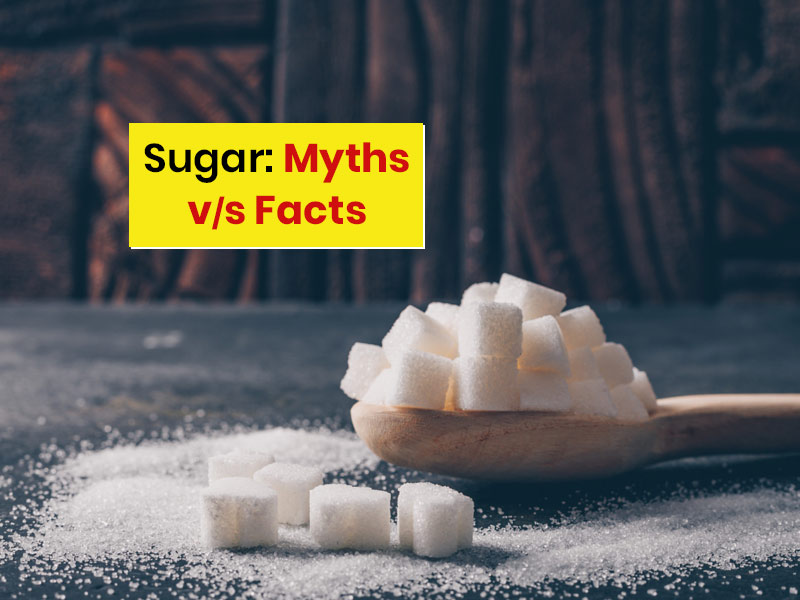
In the realm of health and nutrition, few topics evoke as much controversy and confusion as sugar. Over the years, various myths and misconceptions have circulated about this sweet substance, leading many people to make decisions about their diet based on misinformation.
Table of Content:-
Myths About Sugar You Need to Unlearn
Talking along the lines, the editorial team of Onlymyhealth spoke to Harendra Dubey, Dietician - Sharda Hospital to debunk some of the common myths about sugar that you need to unlearn. Here is what he shared with us.
1. Sugar Causes Diabetes
One prevalent misconception is that sugar directly causes diabetes. While it's true that excessive sugar consumption can contribute to obesity and overweight, which are risk factors for type 2 diabetes, the relationship between sugar and diabetes is more nuanced. Type 1 diabetes, for example, is not caused by dietary factors but rather by autoimmune processes. It's essential to understand that managing blood sugar levels involves a combination of factors, including diet, exercise, and genetics.
2. Avoid Fruit When Dieting
Another myth is that individuals should avoid fruits due to their natural sugar content when trying to lose weight. Contrary to this belief, fruits offer a plethora of health benefits, including essential vitamins, minerals, and fibre. Research has shown that incorporating fruits into a balanced diet can actually support weight management and reduce the risk of chronic diseases. Rather than shunning fruits, focus on consuming them in moderation as part of a well-rounded eating plan.

Also Read: World Obesity Day 2024: Theme, History, and Significance
3. Sugar Must Be Completely Eliminated
While it's prudent to limit added sugars in your diet, completely eliminating sugar is unnecessary and impractical. Sugar is present naturally in many foods, including fruits, dairy products, and vegetables. Instead of adopting an all-or-nothing approach, strive for moderation by making informed choices about the types and amounts of sugar you consume. Cutting out sugary beverages and processed snacks is a positive step, but remember that enjoying an occasional sweet treat can be part of a balanced lifestyle.
4. Sugar-Free Replacements Are Healthier
Many people turn to sugar-free alternatives as a way to satisfy their sweet tooth without the calories. However, research suggests that these substitutes may not be as beneficial as they seem. Studies have linked artificial sweeteners like aspartame, saccharin, and sucralose to various health concerns, including metabolic syndrome, high blood pressure, and type 2 diabetes. Instead of relying on artificial sweeteners, consider natural alternatives like stevia or monk fruit in moderation.

Also Read: 9 Things You Need To Know About Insomnia: Causes, Effects And Cure
5. Low-Sugar Diets Guarantee Weight Loss
While reducing sugar intake can be a useful strategy for weight management, it's not a magic bullet for shedding pounds. Simply cutting out sugary foods without considering overall calorie intake and nutritional balance may not lead to sustained weight loss. Additionally, some low-sugar or sugar-free products may contain hidden calories from other sources, potentially undermining your weight loss efforts. Focus on creating a balanced eating plan that includes a variety of nutrient-dense foods and emphasises portion control.
A Final Word
It's essential to separate fact from fiction when it comes to sugar and its role in our diets. While excessive sugar consumption can have negative health consequences, demonising sugar entirely oversimplifies a complex issue. By understanding the truth behind common myths about sugar and adopting a balanced approach to nutrition, you can make informed choices that support your overall health and well-being. Remember, moderation is key, and there's room for sweetness in a healthy diet.
Also watch this video
How we keep this article up to date:
We work with experts and keep a close eye on the latest in health and wellness. Whenever there is a new research or helpful information, we update our articles with accurate and useful advice.
Current Version
